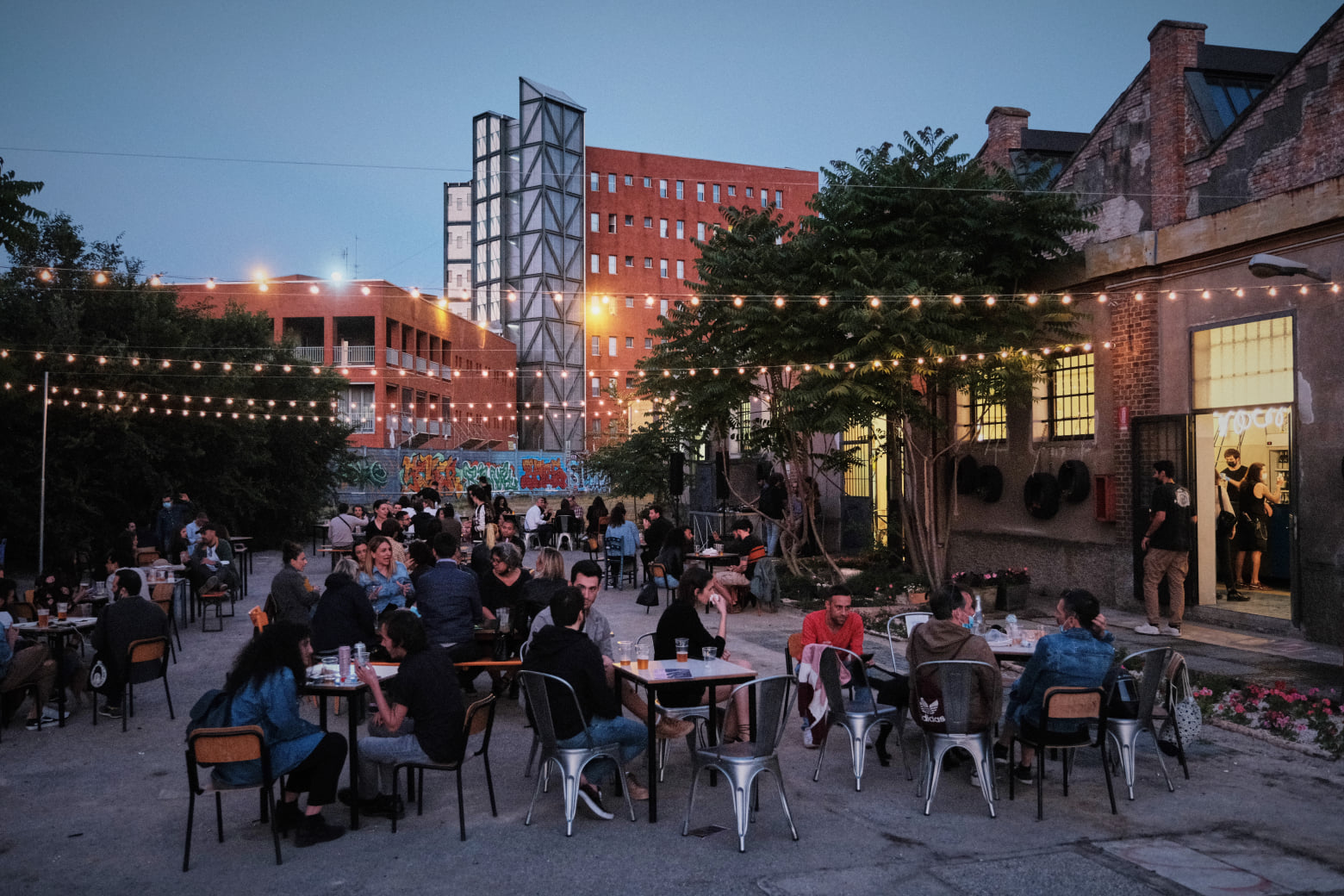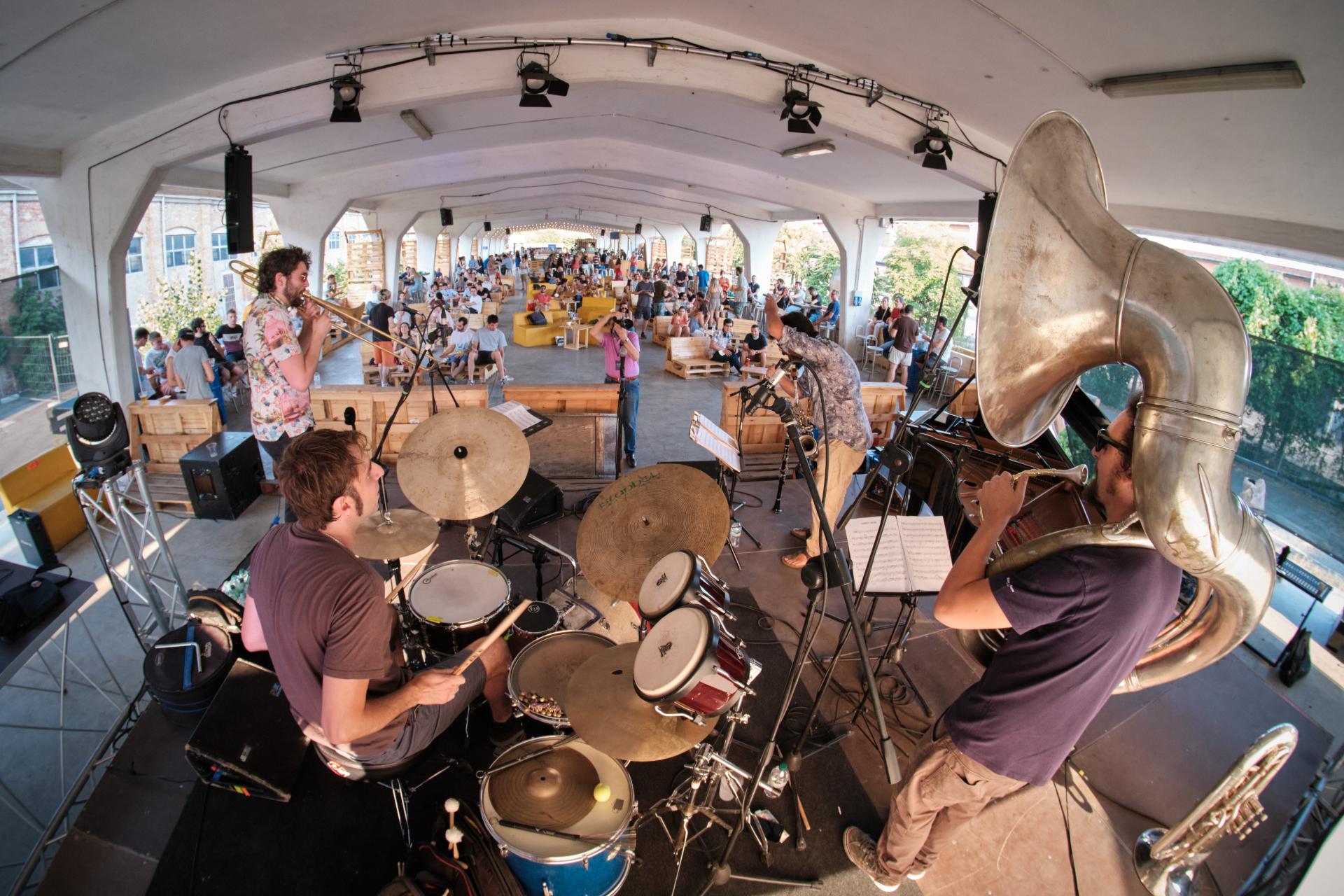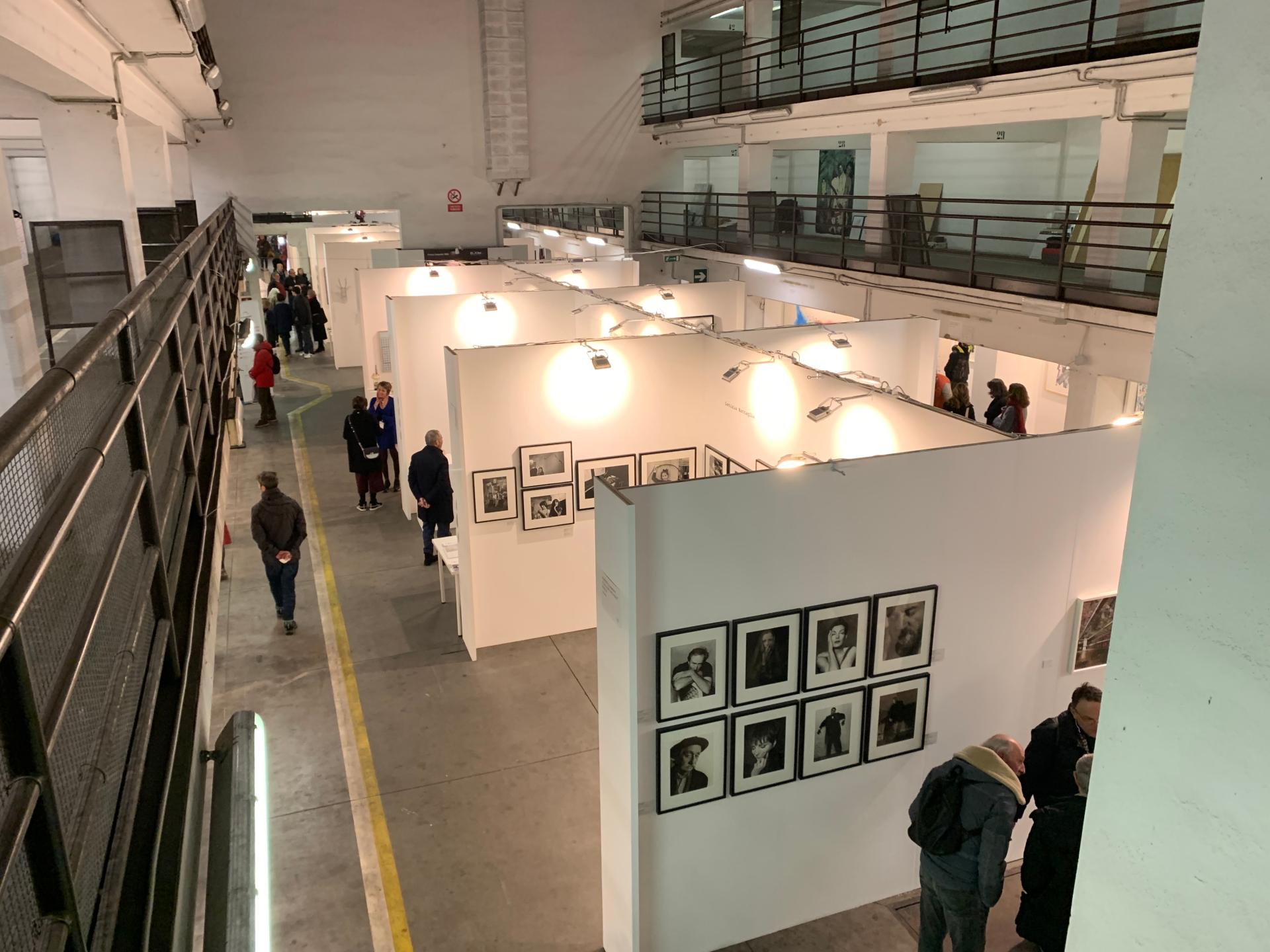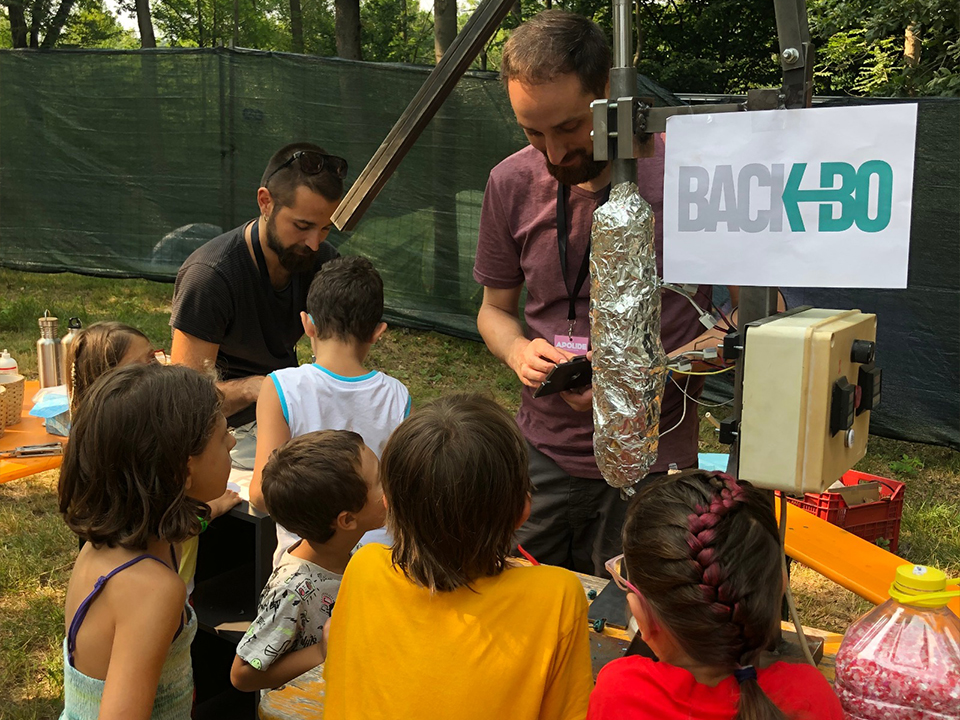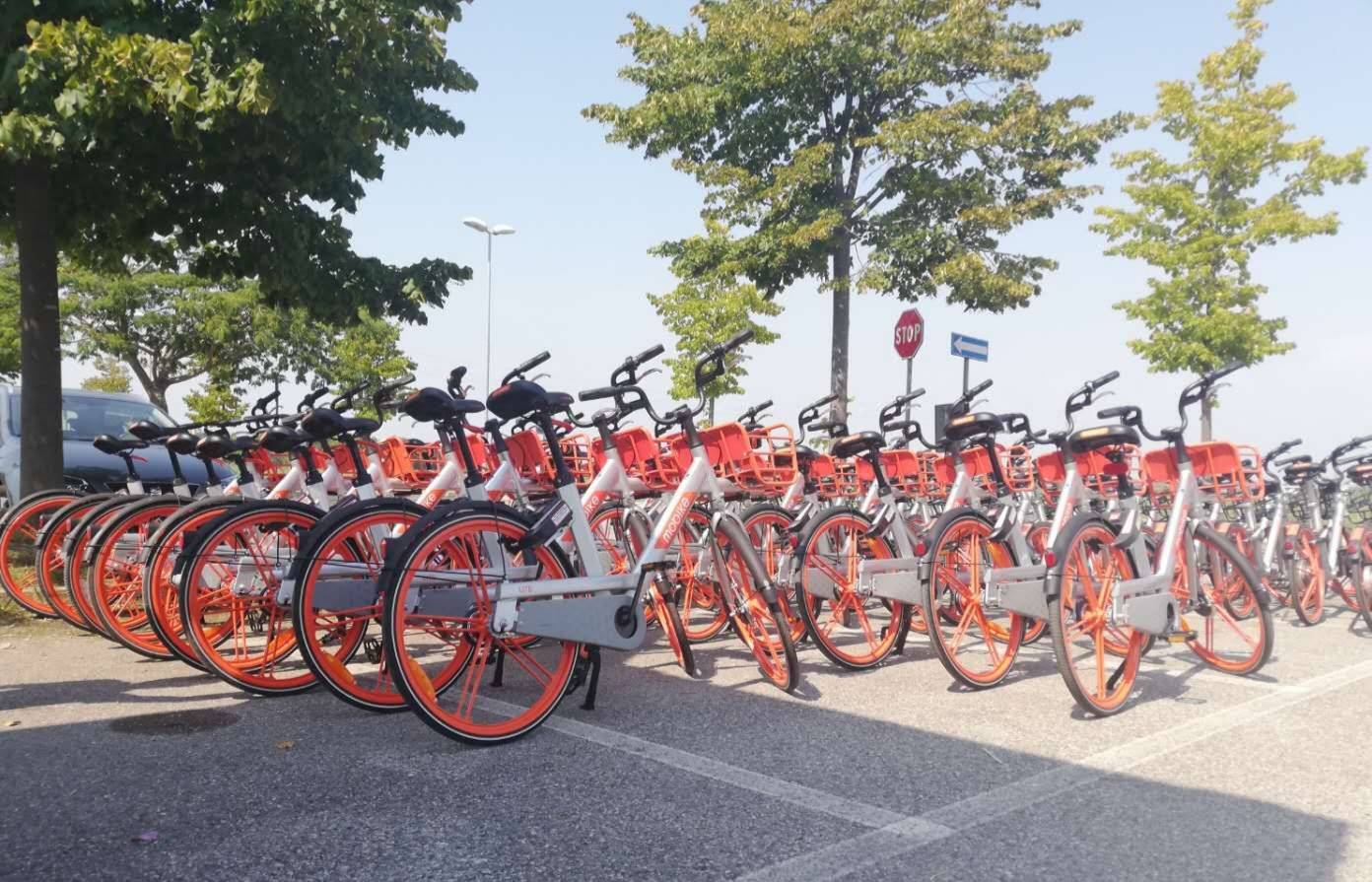DumBO
Basic information
Project Title
Full project title
Category
Project Description
A regenerated multifunctional centre located on the outskirts of Bologna dedicated to culture, circular economy, inclusion, creativity, social innovation, sport.
A former railway yard converted into a charming space that offers social and cultural programming open to all, with the active support of its community, made up of more than 20 organizations.
A cooperative district that involves civil society through a strategy promoted by the public and private sector.
All this and much more is DumBO!
Geographical Scope
Project Region
Urban or rural issues
Physical or other transformations
EU Programme or fund
Which funds
Description of the project
Summary
DumBO is a regenerated multifunctional centre located on the outskirts of Bologna dedicated to art and culture, circular economy, inclusion, creativity, social innovation, sport. Thanks to its size (6 buildings, for a total area of over 18,000 sqm, plus 20,000 sqm uncovered) and very suggestive spaces (formerly it was a railway yard), DumBO is able to propose a varied and quality cultural and social offer: art and photography, civic laboratories, exhibitions, concerts, sporting events, workshops, film festivals. A transversal and cross-sectoral programming, which takes into account accessibility in all its forms.
The DumBO's governance consists of a public-private partnership that includes the company Open Event, the Municipality of Bologna, Fondazione per l’Innovazione Urbana, Legacoop Bologna, the architecture and urban planning studio Performa Architettura+Urbanistica.
DumBO is a project in close relation with the territory: more than 20 people/organizations joined it and are now part of the DumBO district - a real community made up of artists and artistic collectives, communication agencies, cultural and sports associations, cooperatives and companies operating in the performing art and tourism sectors, architecture studios and sustainable engineering firms - who found in DumBO an open and stimulating context, consistent with their commitments towards the environment and society.
The heart of DumBO is the building called "Officina", which consists of: a social bistro, that daily offers a "farm-to-table" food experience; a community space, implemented through the Bologna si Attiva project promoted by the Municipality of Bologna and Fondazione per l’Innovazione Urbana, that hosts various cultural and socio-educational activities, co-designed with the local community; a study room, with more than 10 free workstations for all students; a co-working space, with equipped desks that can be booked daily, weekly or monthly.
Key objectives for sustainability
Sustainability/circularity is one of the pillars of the project. First of all, the philosophy of DumBO is based on the principle of "zero land consumption": to create an important public space such as DumBO, it was decided not to build something new, but to regenerate an abandoned area settled in a peripheral context. Coherently, many members of the DumBO district are committed to sustainability/circularity and their participation has allowed the achievement of important objectives in terms of reducing the environmental impact within the project implementation (the company Ar.Co Wood designed and built the set up of some of its space by using mostly recycled wood pallets), and of raising public awareness of issues such as recycling, reuse, sustainable mobility: the circular economy hub BackBO focuses on how to overcome the throwaway culture, through best practices (specific training, non-disposable glasses providing) and workshops; the leading player in the industry of EU shared micromobility RideMovi has moved its Bologna's hub inside DumBO and together we have created biking paths and bicycle parking areas, reducing the traffic congestion and emission in the neighborhood; Free Walking Tour Bologna designs tours in the neighborhood by exploring the periphery potential in creating a more sustainable and diffused urban tourism; the association Equi-Libristi recovers and free-puts-back in the circulation of books before they are recycled in paper. In order to reduce our environment footprint, in promoting our event we don't print any materials and we suggest using public transport to reach us. At the bistro, all the services needed (i.e. bar, catering for coffee breaks/dinners, etc.) are plastic free and green labelled (i.e. compostable dishes and flatware, waste recycling, etc.). We host events in line with these objectives, such as Vinokilo, the largest vintage/second hand shop event in EU and the conference Recooper, about sustainability.
Key objectives for aesthetics and quality
DumBO aspires to be a meaningful part of people's everyday life, a place where everybody feels like home, and where everyone, from kids to adults, can really be her/himself and express her/his own creativity and personality: so we strongly believe it has to possess a certain kind of identity, style, comfort, and beauty.The contribution of the creative skills of the DumBO district members is key to achieve these objectives: the furniture elements and structures have been designed and realized with the participation of volunteers, friends or kids, during practical laboratories realized by our community member Ar.Co Wood, by using mainly recycled materials. The results are some very peculiar co-designed spaces with fresh looks, 100% wheelchair accessible and reduced environmental impacts; the creative agency PUBLICS ICC puts its skills at the DumBO project disposal to strengthen its identity within a variety of cultural events, art exhibitions, also using immersive experiences in Augmented and Virtual Reality. Furthermore, we realized street art murals all around DumBO spaces, capturing the potentials of a bottom-up mural art movement being developed in Bologna over the last few years. When we refer to the general aesthetics of a space, we believe that sport can play an important role, and that is the reason why we have equipped indoor and outdoor areas with urban sport facilities (skatepark, basket ground, bowls pitches) thanks to our community member Eden. Thus, the DumBO project literally fostered social and urban regeneration in the neighborhood, transforming it into a more welcoming area for anyone passing by, giving it an overall sense of care and beauty and making it more navigable for tourists and residents. Our community member BO-UP contributed to spread those results by organizing free walking tours in and outside the DumBO spaces.
Key objectives for inclusion
DumBO takes inclusivity seriously and declines this priority on many different levels.
For public events, when foreseen, the entrance tickets are cheap, to give everyone the opportunity to attend. Moreover, the DumBO cultural offer is always wide and varied, and takes into consideration the different preferences of the audience, which is made up of people of different nationalities, because it reflects the ethnic composition of the neighborhood. Moreover, to facilitate the participation of people with disabilities, 100% of the spaces have been constructed to be wheelchair accessible.
The sporting activities managed by the community member Eden are especially addressed to youth centres, schools, communities for immigrants and young people from disadvantaged/deviance situations.
In general terms, to stimulate public inclusion and participation, the Bologna si Attiva strategy was implemented throughout the project. It consists of various socio-educational activities to inspire creative debates, support innovative ideas and accommodate diverse public events.
Bologna is one of the most important University cities in Italy and DumBO is very student-friendly, thanks to its study room, with more than 10 free workstations, and a co-working space, with fully equipped desks that can be booked daily, weekly or monthly.
In cooperation with the community member Open Group, DumBO employs adults with difficulties, through special work grants, offering them a safe and comfortable space where they can begin to work on changing their current life situation.
To engage with communities and improve the image of depressed neighborhood, we used community art as a tool. By capturing the potentials of a bottom-up mural art movement being developed in Bologna over the last few years, we realized street art murals all around DumBO. All murals have been created through community engagement, in which citizens, entrepreneurs and artists participated and took co-ownership in the works
Results in relation to category
Through the project, an abandoned manufacturing building was transformed into what DumBO is: a charming, vibrant and inclusive public space, that actively contributed to the social and economic regeneration of the surrounding neighborhood, in several respects.
First of all, it reinforced the identity of the surrounding neighborhood by becoming its main landmark: a big-sized cultural space that combines the charm of post-industrial city with local features of contemporary cultural dynamics and life styles. This has attracted people / organizations to settle in DumBO, creating an open community that generates new connections between culture, art and society, in a virtuous circle that strengthens day by day.
Because of the Bologna si Attiva participative methodology, the project successfully engaged civil society and grass-roots associations in the process of design and implementation of DumBO: that enhanced citizens’ self esteem and the sense of community and solidarity between community members. The engagement of local residents in the participative process strengthened their sense of belonging to the space and, more in general, to the neighborhood.
Thanks to its evocative spaces and its cultural programming, DumBO also became a tourist destination for the city of Bologna, transforming a neglected area into a lively location able to create new jobs and employment opportunities.
These are the main results and impacts of the DumBO project and for all these reasons we apply for the Regaining a sense of belonging category.
How Citizens benefit
The strategy to involve the civil society in the design and the implementation of the project consists in the Bologna si Attiva initiative, promoted by Fondazione per l’Innovazione Urbana in partnership with the Municipality of Bologna, University of Bologna and OpenEvent.
Thanks to the open dialogue promoted by Bologna si Attiva, the redevelopment, the functions and the animation of some of the DumBO spaces has been co-decided and co-planned between citizens, professionals and students, with the aim to create spaces for work, study, cultural activities, especially focused on social innovation and mutualism, thus experimenting innovative practices of reusing part of an area which, for the its size and position, represents an important opportunity for urban transformation and response to the new needs of the territory and citizens themselves.
Bologna si Attiva kick off meeting took place at DumBO in June 2021. During the meeting, the strategy has been shared with the local communities, citizens and all interested parties. Immediately after that, a public call for proposals has been launched, aimed at selecting projects, activities and proposals for cultural and socio-educational animation of DumBO spaces. By the deadline, 34 project proposals were received. The proponents has been invited to participate in co-design meetings, to coordinate the planning of the activities and to jointly define the layout of the community space located in the "Officina" building, where the co-planned activities took place in autumn 2021.
Now the community space is working on a daily basis, and it hosts cultural and socio-educational activities, co-designed with the community and the DumBO district members.
Throughout the Bologna si Attiva strategy we allowed the individuals to actively take part to the project, reinforcing their sense of belonging in the space, the city and in the urban community, beyond any social or ethnic origin.
Physical or other transformations
Innovative character
The innovative character of the project is based mainly on four reasons:
- size and position: DumBO represents a flagship project of urban regeneration in Italy, because of its size and position: it transformed a former 40,000 sqm-abandoned manufacturing building that housed a railway yard into an inclusive community building, by using simple materials and working imaginatively with large-scale gestures.
- public engagement: in general terms, one of the keys to successfully facilitating urban regeneration projects is to encourage local community participation, because participation produces more than just outcomes. The project experimented the human, urban and social regeneration strategy named Bologna si Attiva, based on an unprecedented collaboration for the city of Bologna, which sees the public and private sector and civil society actively working together to plan activities and to co-define function and design of some of the spaces. So, DumBO represents a centre with strong community voice.
- urban regeneration model: the DumBO project conveys a cooperative and participatory model of urban regeneration, based on the ability to involve the vibrancy of stakeholders and urban design energies, an innovative governance capable of regeneration operations combined with creative techniques of participation and involvement and work out entirely new operations, economically viable, socially rewarded.
- cross-sectorial: DumBO offers a great opportunity to showcase innovative solutions for transforming our lived environment, make new connections, attract visitors, and engage with a local and international audience. This is the result of the "district logic" that animates the space: it welcomes different experiences and, respecting the history and characteristics of each one, relates them, to create new synergies and to share a vision. DumBO District is an open, cross-sectoral community, that creates new connections between culture, art and society
Learning transferred to other parties
In general terms, the main learnings of the DumBO project can be transferred to other contexts, especially in less favored city areas and zones, which are more problematic but no less full of possibilities, innovation and change.
Even if the cultural, social and economic context can be different and this can influence the final effect, identifying the critical success factors of the DumBO project can be an useful assessment tool for ongoing or upcoming projects that share similar goals and challenges such as the complex actor composition, the extended timeframe required and collective impact.
One of the keys that successfully facilitates the DumBO project was to encourage civil society participation, by letting the people actively take part into the design and implementation phase and by adopting a "district logic", supported by a participative cooperative model and by a hybrid (or multi-actor) governance - that can be identified as a key opportunity for upscaling urban project. That lead to enhance the capabilities of local communities and increase the social capital around the space - which is likely to be a more effective and sustainable approach for large-scale urban regeneration projects.
The success of DumBO as a project testifies that the cultural dimension is crucial in the effectiveness of urban regeneration initiatives and the competitiveness of cities and neighborhood: more specifically, we used community art as a tool to engage with communities and we propose a varied and quality cultural offer to improve the image of depressed neighborhood and attract visitors.

